Helping your Child at Home
Reading
Research shows that children who read regularly with an adult make better progress than children who do not. As a school, we feel reading is such an important skill, we recommend that all children should be reading at least 3 times per week particularly in the younger year groups. In the Early Years and KS1 children need to become familiar with a wide range of stories to improve their vocabulary and their comprehension abilties. Once children can decode words for themselves and become fluent in reading - they need to develop their skills of expression to aid their understanding of the text. In KS2, the children need to be able to predict what might happen next, pick out key information from a text quickly and accurately, use the text to help them understand complex vocabulary and infer what the author means - unpicking the hidden message.
Please support your child with their reading - help them to develop a lifelong love of reading and learning. Visit the library, buy books, download Kindle books and share your favourites from your own childhood too.
Times Tables and Number Bonds
These are two key areas of mathematics which are vital in helping children to become fluent mathematicians. The age of the calculator in Primary School has gone to enable children to use their brain to solve problems. As children move through the education system they will struggle to understand mathematical questions if they do not have strong foundations. Please help your child to learn the Number Bonds to 10 - crossing over the 10s and to know their Times Tables to at least 12 x 12. There are many apps available to support with this.
Money and Time Matters
These are two tricky areas that children will always need to know about whatever their future career. Children live in a digital world but they still need to know both analogue and digital time. Even Roman Numerals are used on clock and watch faces.
Money - although most children see adults using credit cards - they don't handle real money these days. Doing little jobs for small amounts of pocket money and then saving up to buy a favourite magazine or toy can really help children develop an understanding of the value of money. After all - they will really need to understand it when it comes to buying a car or a house!
‘Understanding Your Child’ Warwickshire Guide for Parents
Follow the links below to the Warwickshire Guides:
2b Understanding Your Child A5
2d Understanding Your Pregnancy






